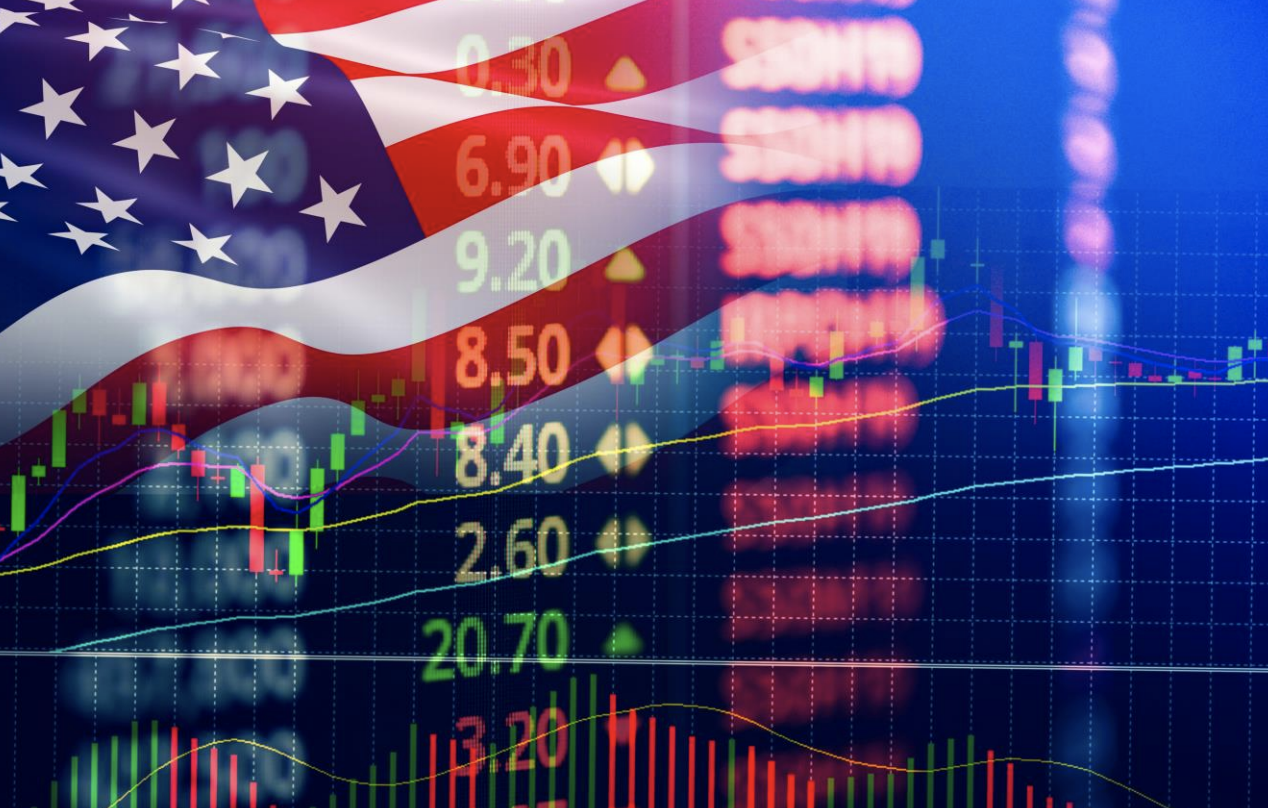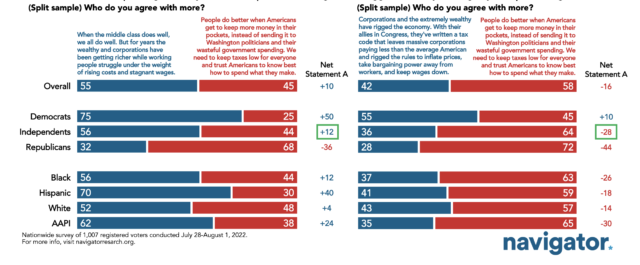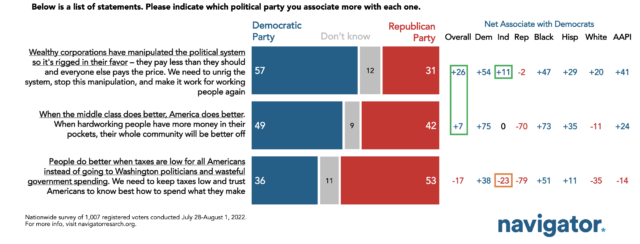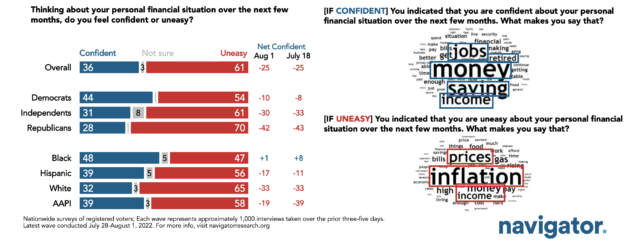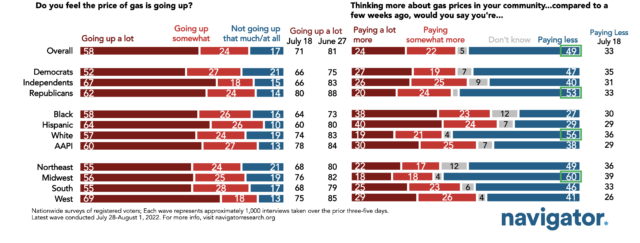- A message focused on the middle class and stagnant wages – where Democrats have a small advantage – is more resonant than one focused on corporations and the extremely wealthy rigging the economy – where Democrats have a large advantage.
- Americans see Democrats as the party of making corporations pay their fair share and to a lesser extent, the belief that “when the middle class does better, America does better”; Republicans are associated with lower taxes and less government spending.
- There has been a double-digit decline in the share who say gas prices “are going up a lot,” and nearly half say they are paying less for gas now than they were a few weeks ago.
Centering the Middle Class Is a Strong Access Point to Making an Effective, Populist Economic Message
Independents prefer the middle class and stagnant wages message by a 12-point margin over a standard Republican message about lower taxes and less spending, but they favor the Republican message over a rigged economy message by a 28-point margin.
Democrats Have Advantage on Putting Middle Class First But Hold Larger Advantage on Holding Corporations Accountable
Independents associate Democrats with holding wealthy corporations accountable and making the political system work for working people by 11 points; keeping taxes low is associated more with Republicans (net -17 Democrats overall, -23 among independents).
Americans Feel Uneasy About Their Personal Financial Situation and Point To Prices, Inflation, and Income as to Why
Three in five Americans remain uneasy about their personal finances, and when asked why, prices and inflation emerge as top concerns.
- For those who feel confident, they point to increased numbers of jobs, saving money, higher incomes, and being able to retire.
The Share Who Say Gas Prices Are “Going Up a Lot” Is in Decline While Nearly Half Are Paying Less for Gas than Weeks Before
Since late June, there has been a 23-point decline in the share who say gas prices are going “up a lot” (from 81% to 58%).
- Republicans (53%), white Americans (56%), and Midwesterners (60%) are most likely to say they are paying less than a few weeks earlier; just 41% of Westerners say they are paying less.
